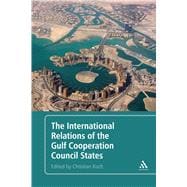The book focuses on the international relations of the Gulf Cooperation Council (GCC), the only successful regional integration effort in the Arab world.
The Gulf region is a key center of international politics and security, and the GCC states (Bahrain, Kuwait, Oman, Qatar, Saudi Arabia, and UAE) are carving out a role for themselves, not only to promote economic development, but also to develop concerted foreign policies. The book looks at the policymaking process and the role of the GCC as an international institution. Case studies highlight key regional and international relationships, e.g., with Iraq, Iran, Yemen, the US, Russia, Asia, and the EU.
Christian Koch is Director of International Studies at the Gulf Research Center in Dubai. His unique and thorough analysis of the GCC states will be a key text for those studying Arab politics and for policymakers who need to understand the dynamics shaping the Gulf region.








